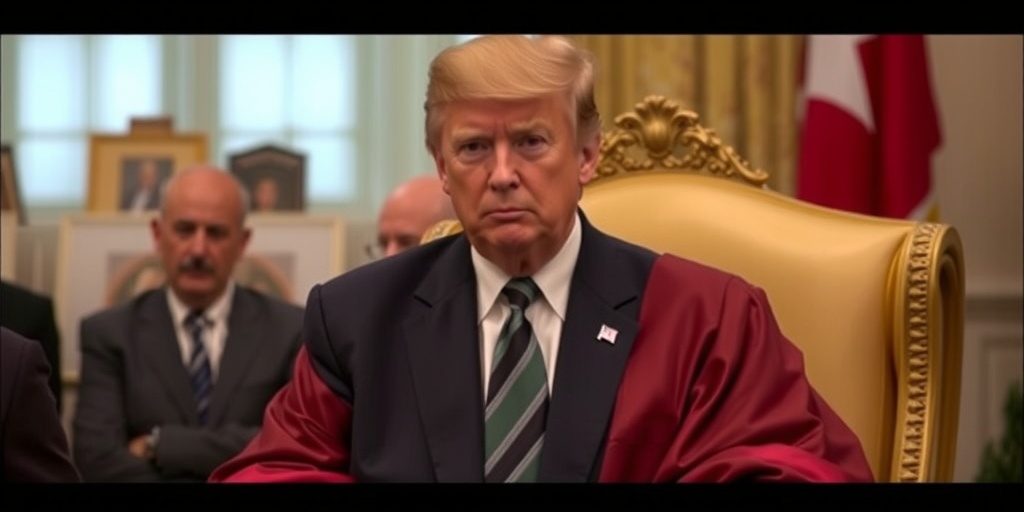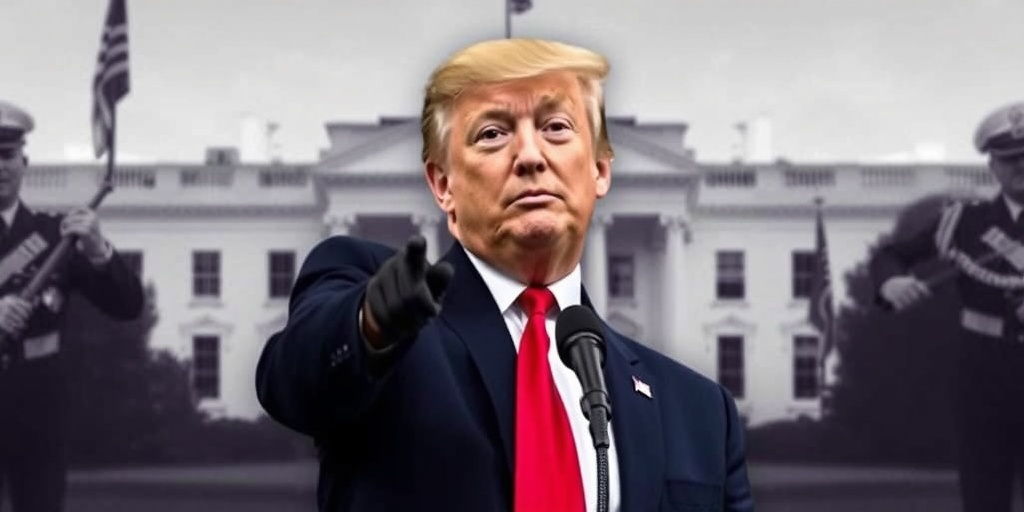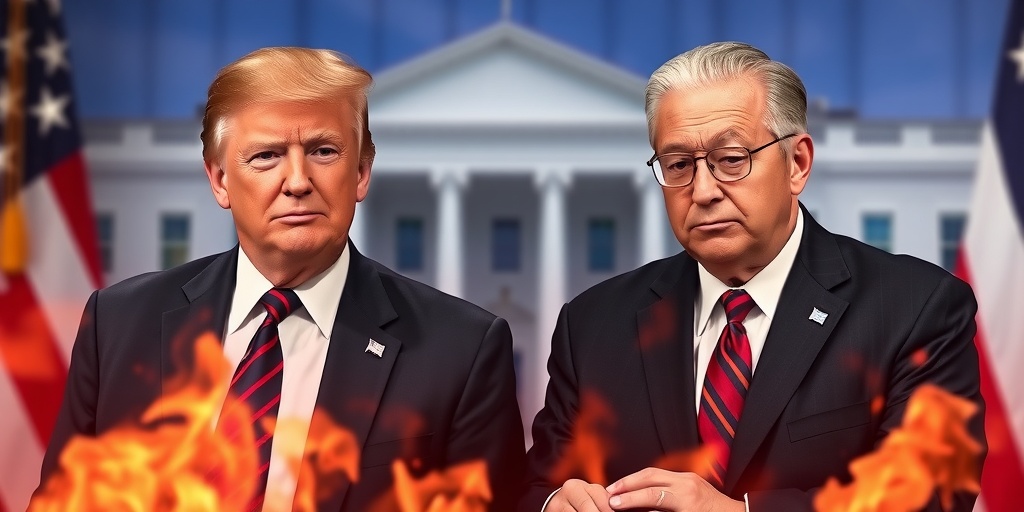Now Reading: Jordan’s King Rejects Trump’s Gaza Displacement Plan
-
01
Jordan’s King Rejects Trump’s Gaza Displacement Plan
Jordan’s King Rejects Trump’s Gaza Displacement Plan

King Abdullah II of Jordan Rejects Trump’s Proposal to Resettle Palestinians
In a decisive move, King Abdullah II of Jordan dismissed President Donald Trump’s controversial proposal that Jordan absorb Palestinians currently living in Gaza. During a recent meeting at the White House, King Abdullah emphasized his unwavering opposition to the idea of displacing Palestinians from their homeland, stating that this stance is part of a broader unified Arab position.
The meeting, which was described as “constructive” by King Abdullah, took place amidst escalating tensions in the Gaza Strip. Following the talks, the King issued a statement on social media, highlighting the urgent need to focus on rebuilding Gaza without displacing its Palestinian population. He remarked, “Rebuilding Gaza without displacing the Palestinians and addressing the dire humanitarian situation should be the priority for all.”
Trump’s remarks came as part of his administration’s broader strategy to gain support from regional allies, including Jordan and Egypt, for a plan that includes taking control of Gaza. The proposal faced widespread condemnation from various quarters, with critics arguing that it exacerbates the ongoing conflict and undermines any prospects for peace. Trump’s bold assertion, “We will have Gaza,” illustrates the president’s intent to exert American control over the war-torn region.
During the meeting, King Abdullah chose to respond diplomatically to Trump’s proposal, portraying the U.S. president as a potential advocate for peace in the Middle East. He mentioned Jordan’s willingness to assist sick Palestinian children, likely aiming to create goodwill while navigating the fraught political landscape. However, it seems he was much more explicit in his opposition in a private setting, advocating for the two-state solution as the pathway to regional stability, which he stressed required U.S. leadership.
The recent discussions between King Abdullah and Trump followed alarming developments regarding the cease-fire in the ongoing conflict in Gaza. Prime Minister Benjamin Netanyahu has issued warnings to Hamas, stating that if hostages were not released by a set deadline, Israeli military actions would intensify. Trump echoed these sentiments with an ultimatum to Hamas, adding pressure on the already fragile cease-fire agreement.
Moreover, King Abdullah’s refusal to accept the idea of mass displacement for Palestinians came after Trump urged both Jordan and Egypt to allow nearly two million Palestinians to resettle in their territories. This suggestion faced immediate backlash from both nations. In a separate statement, the Egyptian foreign ministry reaffirmed its stance that Palestinians must be allowed to remain in their homeland while expressing openness to cooperate with the U.S. on a just resolution to the conflict.
The meeting between King Abdullah and Trump represents a critical juncture not only for Jordan, which is historically a key U.S. ally in the region, but also for the future dynamics in Gaza. Analysts point out that the proposal to resettle Palestinians could further destabilize Jordan, where a significant percentage of the population (over half of its 12 million citizens) is of Palestinian descent. The monarchy is already sensitive to the tensions that could arise from such an influx of refugees.
Furthermore, Jordan’s parliament recently introduced a bill aimed at banning the resettlement of Palestinians in the country, illustrating the political complexities that King Abdullah faces as he navigates his relationship with the U.S. government while being mindful of domestic sentiments.
Despite facing pressure from Trump, who hinted at the possibility of cutting aid to Jordan unless it accepted Palestinians, the King managed to maintain a façade of cooperation during the meeting. Trump later appeared to retract his threats about aid, remarking that the U.S. was above such measures.
The dynamics at play were further complicated by Trump’s continued insistence on taking control of Gaza, a move he believes would create job opportunities and tourism development—ideas that many view as implausible in the current context of ongoing conflict. Observers note that Arab leaders have often utilized strategies to placate Trump while dealing with the more policy-oriented individuals within his administration.
King Abdullah’s approach reflects a long-standing diplomatic strategy employed by Arab leaders when interacting with U.S. administrations, often navigating between placation and practical engagement with U.S. foreign policy objectives. The stakes for Jordan are high, as the country seeks to balance foreign aid credibility while protecting its national interests amid regional instability.
In conclusion, King Abdullah’s firm rejection of Trump’s proposal underscores a broader reluctance in the Arab world to accept forced displacement and highlights the complexities surrounding the Israeli-Palestinian conflict. As discussions continue, the call for a just and lasting resolution remains more critical than ever.
Stay Informed With the Latest & Most Important News
Previous Post
Next Post
-
 01New technology breakthrough has everyone talking right now
01New technology breakthrough has everyone talking right now -
 02Unbelievable life hack everyone needs to try today
02Unbelievable life hack everyone needs to try today -
 03Fascinating discovery found buried deep beneath the ocean
03Fascinating discovery found buried deep beneath the ocean -
 04Man invents genius device that solves everyday problems
04Man invents genius device that solves everyday problems -
 05Shocking discovery that changes what we know forever
05Shocking discovery that changes what we know forever -
 06Internet goes wild over celebrity’s unexpected fashion choice
06Internet goes wild over celebrity’s unexpected fashion choice -
 07Rare animal sighting stuns scientists and wildlife lovers
07Rare animal sighting stuns scientists and wildlife lovers





















